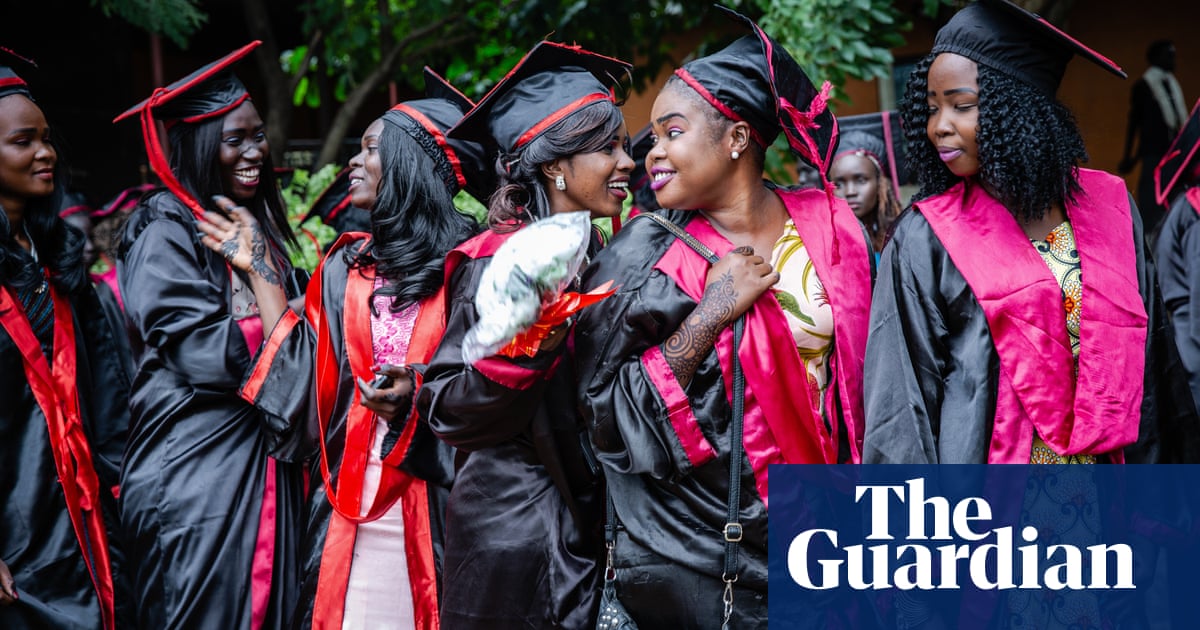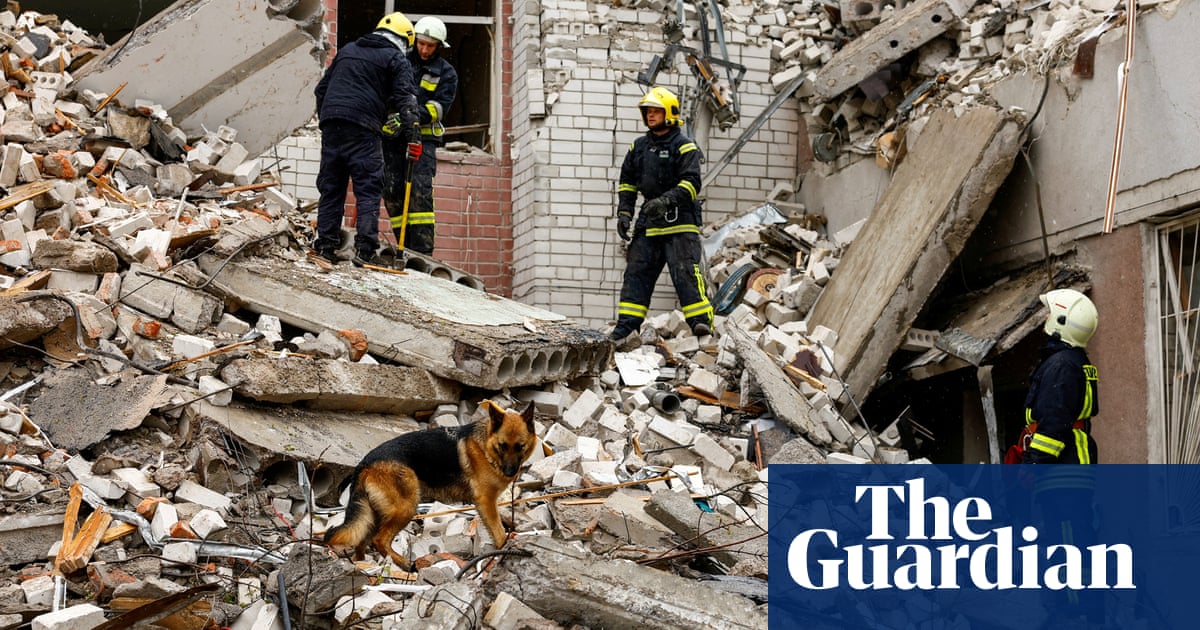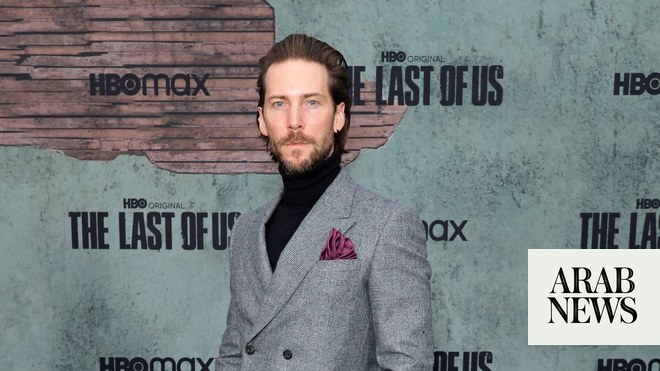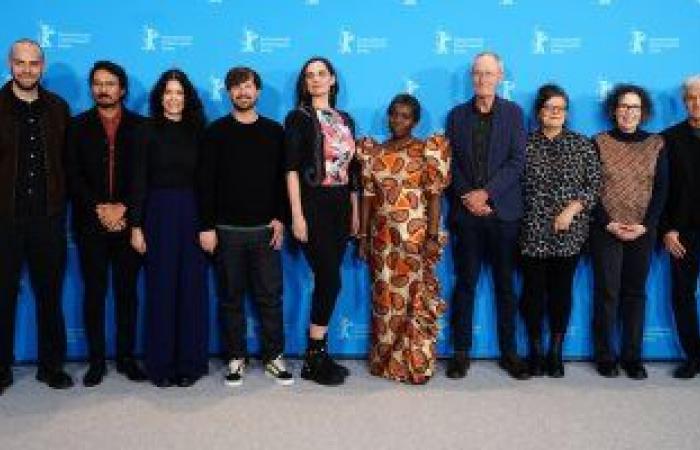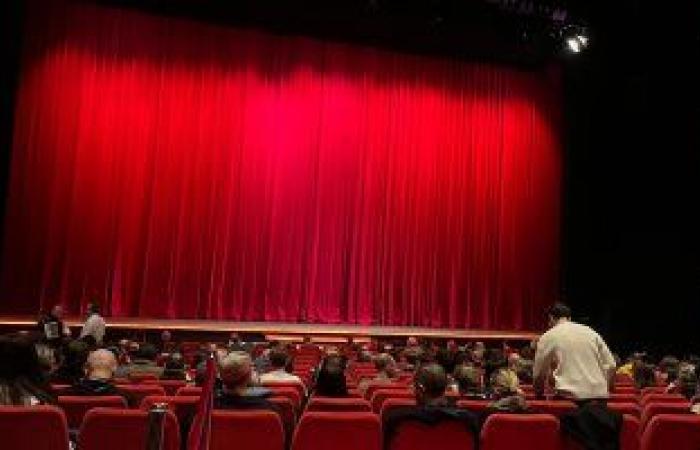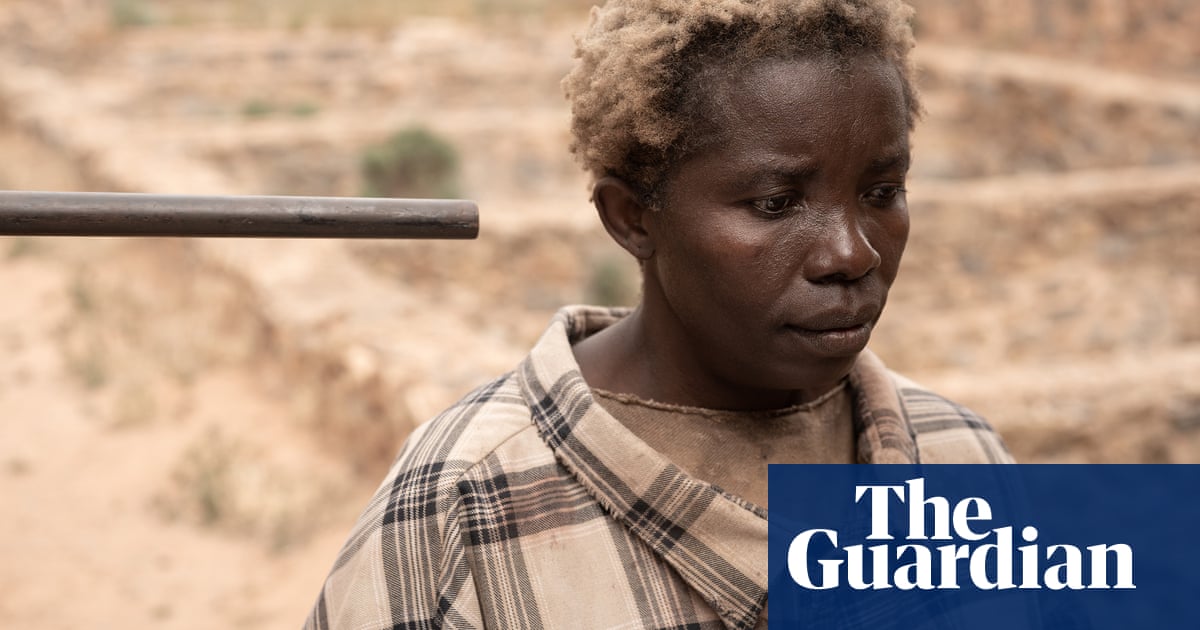
Mwajemi Hussein had never set foot inside a cinema before she auditioned for the lead role in a film by one of Australia’s most celebrated directors. Growing up in a village in the Democratic Republic of the Congo (DRC), there were no cinemas. In her 20s, fleeing war, she lived for eight years in a refugee camp in Tanzania with her husband and children. Later, after the family were granted asylum in Australia, there was simply no time. “I was busy learning English and raising children, going everywhere, volunteering,” she grins.
To describe Hussein, 51, as busy is an understatement. As we speak over Zoom, it’s the end of her working day in Adelaide. After learning English in Australia, she studied for a degree in social work while bringing up her seven children – including a son, 15, who is severely autistic. Now she works supporting foster carers. Before leaving for the office this morning, she went out running for an hour: “I try to run or walk every day.” A joiner-in, she’s involved in what sounds like dozens of organisations: a running club on Thursdays, community gardening and a public speaking group for women.
It was a friend from public speaking who mentioned a casting call for a new film – they were looking for a black woman of around her age. Hussein puts on a comedy impersonation of horrified response. “No! I’ve never been to a movie! How am I going to do acting?” But the idea got under her skin. So with her husband filming on his phone she made a 20-second video. “OK, my name is Mwajemi, I come from Congo. I enjoy gardening and hiking and …” She swishes a hand through the air, cutting herself off. “Finished!”
Two days later, the casting director called to arrange a meeting. Next came a face to face with Rolf de Heer, the film’s Dutch-born Australian director, who talked with her for two hours about her life. De Heer’s name is often prefixed with words such as “visionary” or “auteur”: he’s perhaps best known for his collaborations with the extraordinary Indigenous actor David Gulpilil, who won a best actor award at the Cannes film festival in 2014 for his role in their film Charlie’s Country.
Hussein realised De Heer was a big deal when she mentioned his name to another friend. “‘Are you joking, Mwajemi?’” she remembers the friend saying. “‘Wow! He’s directed many films.’” Hussein shrugs. “I didn’t know him.” As time went on, as she reached the next stage of casting, then the next, Hussein began to let herself get excited; but at the same time she felt nervous about failing. “I was worrying. If they take me and I don’t know how to do it, I will be in trouble.” She laughs. “But I love challenges. I’m very curious about new things.”
After that first meeting with De Heer, producers sent her the script, which put her in a tailspin. “Oh my God! What is a script?” I’d kill to know what’s written in that script. Not dialogue, that’s for sure. The film is virtually wordless. It’s called The Survival of Kindness and it is a strange, nightmarish piece of apocalyptic experimental cinema that reminded me a little of The Road – but with a slightly less bleak view of humanity. The setting is a lawless world where we first see Hussein’s character locked up in a cage, held prisoner by white-skinned men who wear gas masks. She’s not named but is called BlackWoman in the end credits.
Hussein’s performance is shattering. With no dialogue, what she does is to telegraph BlackWoman’s inner life: her resilience, determination to stay alive, her compassion and her rage. Every gesture is beautifully expressive, rich with emotion. Hussein is a magnetic screen presence. The film follows BlackWoman as she escapes the cage and walks barefoot across a hellish landscape, evading capture by more masked white men, who are rounding up people of colour and putting them to work in chains.
I ask her what she felt reading the script? She answers slowly. “I liked the story. I saw a little bit of myself in BlackWoman.” In what way? She lets out a sigh. “The connection was discrimination, neglect, because that is part of my life experience.”
Hussein has lived though her fair share of trauma. You could make a dozen films about her life. She grew up in a poor family in the DRC’s South Kivu region. When she was 13, an ethnic conflict broke out between her mother and father’s families. “They were about to kill us, especially myself.” Her father walked Hussein and her younger sister through the forest for three days to safety in another village, putting them in the care of a friend. “Unfortunately, when my dad returned to our village he was killed.”
In the new village, Hussein learned a new language and started a new life with the people she calls her adoptive parents. She enjoyed school and begged the principal to let her continue studying. “It was not encouraged for girls to go to school. In the village, once you turned 15, 16, you have to get married.” To be a clever girl was frowned upon. “But there was something inside myself pushing me to fight for education.” In high school she met her husband and was a mum of three young children when civil war broke out in 1996. The old ethnic conflict in her family flared up again. So Hussein fled into the forest with her husband and children – her youngest daughter just three months old. “Life in the forest was very tough: malaria, no food.” They ate cassava picked in abandoned farms. After three months, Hussein and her husband decided to escape to a refugee camp in Tanzania.
Before they could leave, disaster struck. Hussein was separated from her husband during an attack on a nearby village: “I was with some women. We were going to fetch food and water.” She escaped, and fled carrying her baby daughter in her arms. I can’t begin to imagine how terrifying that was. “It was very, very tough. It was not easy.” She stares away for a moment. Hussein had no money but managed to barter clothes in return for a boat crossing to Tanzania. People were kind to her as a woman travelling alone with baby, she says. Three months later in Tanzania she was reunited her husband and two older children. After a couple of months in a detention centre, they arrived at a newly opened refugee camp and were handed a tent. “The awful thing at the beginning was water. There was no water.” Every day she queued from four or five o’clock in the morning, waiting five or six hours for a single bucket.
She says they stayed in the camp for eight years; it was the childhood home of her kids, and the youngest were born there. Hussein’s earlier determination to get a high school education paid off: she got a job working as a manager for a literacy programme teaching female refugees to read. As a public speaker, she has shared her experiences on stage. “It is important to share. I believe in sharing stories. We learn and we grow from stories.”
Eventually, her family was granted asylum in Australia. But still, she says, she doesn’t always feel safe. She tells me this as we talk about the theme of racism in the film. “When you have black skin, you don’t feel safe.” She catches herself, pauses, as if she’s not sure whether to continue then presses on. “I want to be honest.” She tells me that even now, she’s careful walking down the street and doesn’t want to draw attention to herself. She knows that when she knocks something over, makes a noise, it’s her skin colour that people see: “‘Oh, look at the refugees! Look at the black woman! Look at the Africans!’” All her family feel that way. “We are very mindful what we do. We are very careful. We are safe in Australia but somehow we don’t feel that safety.”
The question that friends, even her kids, are asking is whether she found it emotional or traumatising acting in the film. She shakes her head. “I was very comfortable playing the role.” At the end of a long day acting, she says she could turn it off like a tap. Her fitness helped with the gruelling shoot – which sometimes began with a 3km hike up a mountain to reach the location. Towards the end of the day on set, the crew would ask her if she needed a rest, to break for the day. Her answer was always no. “I don’t get tired easily.” What’s your secret? “I was born just like that” she says, laughing. “If I want to achieve something, there is no way I can stop.”
That grit, she says, was instilled by her father. “My dad used to say: ‘If you quit, you’ll never achieve. If it’s hard, try harder.’” She doesn’t believe in destiny. “I have survived a lot. I believe I survived because I don’t take it as: What will happen will happen. I have to make sure I survive.”






